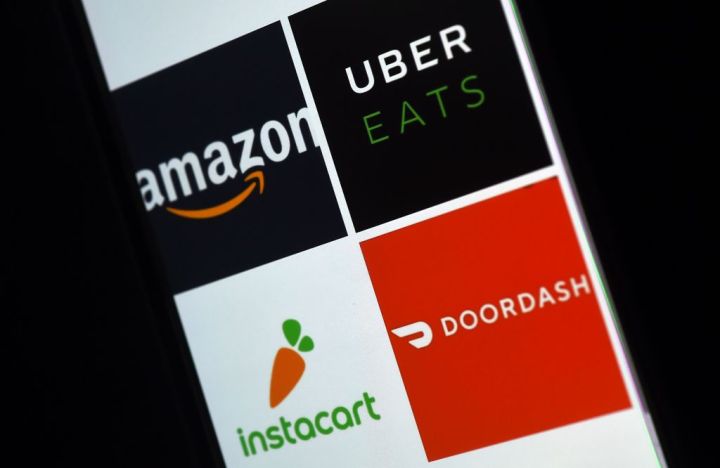
How might delivery apps evolve in a new regulatory climate?
How might delivery apps evolve in a new regulatory climate?

New York City lawmakers passed a package of new laws aimed at improving conditions for workers who make deliveries for apps like Door Dash, Grub Hub and Uber Eats. It’s just the latest effort by a city to regulate the apps, which have soared in popularity during the pandemic.
The new worker protections include minimum pay, access to bathrooms at restaurants and greater transparency around tipping. They come after a wave of measures in other cities that have limited how much the apps can charge restaurants.
“You know, the other shoe was going to drop at some point and it’s dropping now,” said Sucharita Kodali, an analyst with Forrester. “There was just not enough margin in restaurant delivery, to make money.”
So, she said, the platforms have depended on holding down the cost of labor and other efficiencies.
With increased regulation, the apps could pass more of the cost to consumers says NYU business professor Arun Sundararajan, or bypass traditional restaurants.
“And more about ghost kitchens and commercial kitchens, you know, being set up purely for delivery,” he said.
He adds those operations are more efficient and easier to scale up.
There’s a lot happening in the world. Through it all, Marketplace is here for you.
You rely on Marketplace to break down the world’s events and tell you how it affects you in a fact-based, approachable way. We rely on your financial support to keep making that possible.
Your donation today powers the independent journalism that you rely on. For just $5/month, you can help sustain Marketplace so we can keep reporting on the things that matter to you.

















